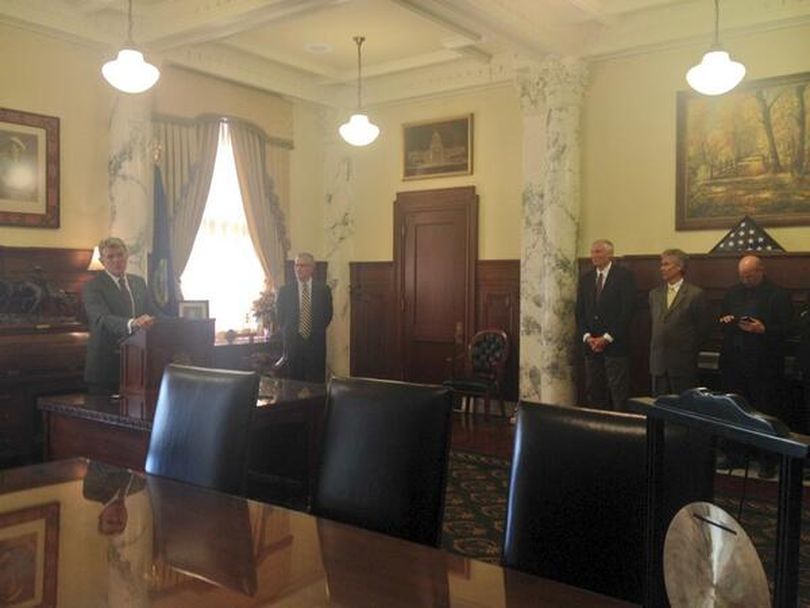Otter signs new jobs tax-reimbursement incentive bill into law

A plan to use big tax breaks to lure businesses to expand in Idaho won the governor's stamp of approval, the AP reports. Under the new law, HB 546a, which Gov. Butch Otter signed today, Idaho would refund up to 30 percent of state corporate income taxes, payroll taxes and sales taxes to businesses that create 50 new jobs in urban areas and 20 in rural areas. Proponents hope that will be enough to sweeten the deal for big employers mulling a move to the Gem State. The incentive will also apply to Idaho-based businesses that expand or take on a new project, if they create the required numbers of new jobs paying at least the county average wage; click below for a full report from AP reporter Katie Terhune.
Otter signs tax incentive bill to lure businesses
By KATIE TERHUNE, Associated Press
BOISE, Idaho (AP) — A plan to use big tax breaks to lure businesses to expand in Idaho won the governor's stamp of approval.
Under the new law, which Gov. C.L. "Butch" Otter signed Thursday, Idaho would refund up to 30 percent of state corporate income taxes, payroll taxes and sales taxes to businesses that create 50 new jobs in urban areas and 20 in rural areas.
Proponents hope that will be enough to sweeten the deal for big employers mulling a move to the Gem State. The incentive will also apply to Idaho-based businesses that expand or take on a new project.
Sen. Jim Rice, R-Caldwell, said during a Senate debate last month that the tax incentives are a low-risk way for Idaho to compete with other states: Companies wouldn't reap the tax benefit until hitting the job-creation mark, even if it takes several years.
"They start getting it when they perform sufficiently," he said. "What they receive back is money that they've paid in, so the state has already received the funds."
Sen. Todd Lakey, R-Nampa, agreed, noting that bringing in businesses will help fill Idaho's coffers even if it has to hand some of that money back.
"Do we want to have 70 percent of a good thing or 100 percent of nothing?" he asked. "This is a competitive tool we need in Idaho."
The measure also mandates workers must be paid wages that at least match the county average. That's something lawmakers hope could lift Idaho from its position as the state with the second-lowest average wage and the nation's highest share of workers per capita earning the minimum wage.
But the new law has faced a rocky road in the Legislature — both from small business owners, who say it will give industry giants an unfair edge, and from the Attorney General's Office, which warned lawmakers the bill left Idaho "constitutionally vulnerable."
The bill's first version gave the power to set rates and decide who received the incentives to a seven-person board — with no option to appeal the decision. Deputy Attorney General Chelsea Kidney wrote that could cause a problem if similar or identical businesses get different tax rates based on their ability to negotiate.
Kidney's opinion stopped the bill on its final hurdle, and lawmakers tweaked it to add an appeal process before calling for a revote on the Senate floor.
The law will go into effect July 1.
Copyright 2014 The Associated Press
